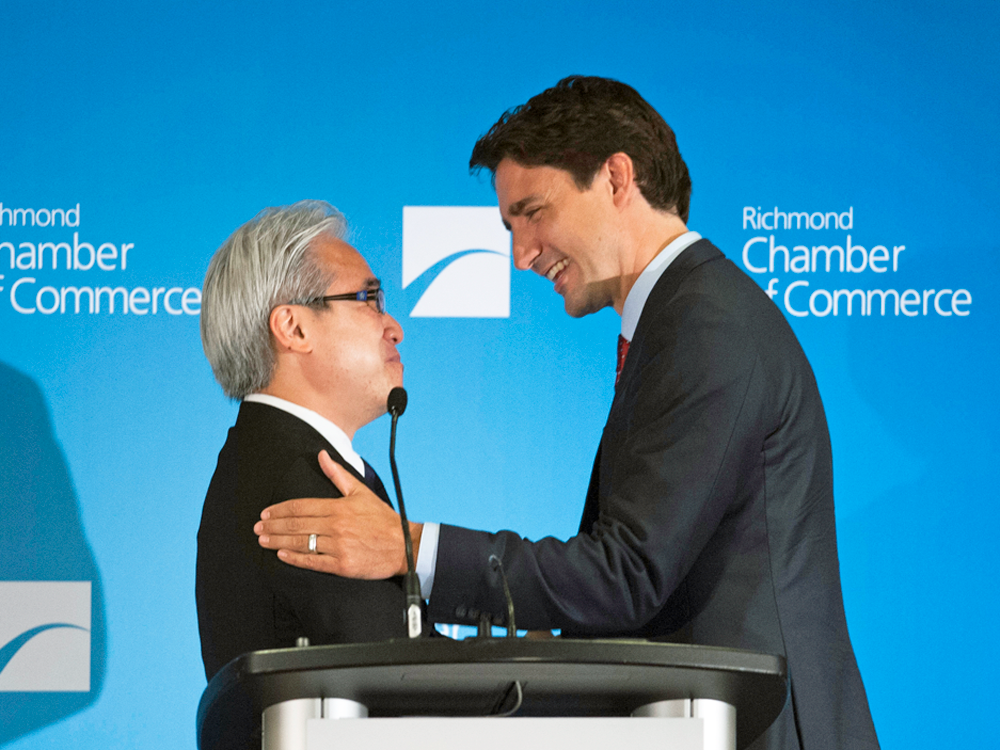In the tightly-knit world of Vancouver’s wealthy Chinese immigrants, Paul Se Hui Oei stood out for his ties to some of Canada’s most powerful politicians and his mastery of cultivating guanxi, or personal relationships, that attracted legions of Chinese clients eager for his assistance in gaining a legal foothold in Canada.
But behind closed doors, the authorities say, Oei, a prominent immigration consultant and philanthropist, ran an elaborate fraud scheme, pocketing millions from investors, including many Chinese citizens led to believe their investment would help them secure permanent residency in Canada. Instead, the authorities say, he spent the money on luxury cars, beauty pageants and donations to political parties.
“Everything he said were lies,” said Chen Wei, a Chinese immigrant who testified earlier this year in a case against Oei before a British Columbia Securities Commission panel. Chen’s family invested $1 million in Oei’s project, according to hearing transcripts.
On Wednesday, the British Columbia Securities Commission ruled Oei, who denied the allegations, had swindled nearly $4 million from investors.
Oei and his companies “misappropriated these funds and used them for their own purposes and not as the investors were told they would be used,” the panel stated. Oei declined to comment.
British Columbia is trying to shed its reputation as a hotbed of financial crime and to curb international money laundering at its casinos, a practice the provincial attorney general said was known as the “Vancouver model.”
But it is unclear whether Oei will have to pay for his malfeasance. Although the commission is expected to impose penalties on Oei to recoup the fraudulently obtained funds, the provincial regulatory agency has faced criticism recently from the British Columbia government for its dismal enforcement record.
In response to an investigation last month by The Vancouver Sun that showed the commission had collected less than two percent of $398 million in financial penalties over the past decade, the B.C. finance minister, Carole James, called on the commission to improve its enforcement methods.
“It is disturbing to see the apparent lack of accountability for white collar criminals who have ruined people’s lives through financial fraud,” James said in an emailed statement.
According to experts, Oei’s case is part of a pattern of problems with Canada’s immigration programs, which, like the United States, set aside coveted residency permits for foreign investors. Some also say it underscores a troubling flaw in the Canadian justice system, which often allows white-collar criminals to walk away with little more than a slap on the wrist.
“Canada doesn’t take financial crime seriously,” said Christine Duhaime, a lawyer in Vancouver who specializes in laws dealing with terrorist financing and money laundering.
In Vancouver, Oei owned an immigration consulting and financial services company, and sought to use his connections in the Chinese community to raise money for a recycling startup, Cascade.
It is disturbing to see the apparent lack of accountability for white collar criminals who have ruined people's lives
Oei also promoted his connections with top Canadian politicians, including then B.C. premier Christy Clark and Prime Minister Justin Trudeau.
But the commission said that from 2009 to 2013, Oei told investors that his project was approved by the British Columbia government (it was not) and that their investments would give Chinese citizens the right to immigrate to Canada, as well as shower them with profits. All they had to do was transfer funds into the trust account of a local lawyer and member of the Canadian Parliament, Joe Peschisolido.
“This made investors feel safe, and that their money would be safe,” Mila Pivnenko, one of the commission lawyers, told the panel. “Of course, Oei was the only person who directed the lawyer where to disburse the funds from the trust account.”
Peschisolido and his firm deny any wrongdoing.
The commission said Oei secretly transferred millions of dollars meant for the recycling company into his own bank accounts and issued shares in companies with no assets to investors in order to avoid detection.
Oei raised about $13.3 million from 64 investors, but the commission says he kept $6.9 million for himself. When Cascade went bankrupt in 2013, Oei told many investors they could recoup their money if they topped up their investment, without alerting them that more that half of the funds he had already raised from investors had never been sent to the project, the commission said.
Yicheng Jiang, 53, a businessman from China’s coastal Zhejiang province, said in a phone interview that during several visits to Vancouver, Oei drove him and other Chinese investors around in a BMW, hosted lavish meals and showed off photos of himself with Canadian politicians.
According to Jiang, when Chinese investors demanded their money back in the fall of 2015, Oei sent the investors photos of Oei “hugging Trudeau and all these celebratory photos.”
“It was like, ‘Look at my relationship with the prime minister. We are like buddies,’” Jiang recalled.
Oei “took advantage of our trust to cheat us,” said Jiang, who has also filed a lawsuit in British Columbia against Oei. Jiang said he was successfully sued by the members of his consortium to recover their losses, which has left him penniless.
Oei and his wife have been active in B.C. political fundraising circles and have donated $8,477 to the federal Liberals since 2014. In July, 2015 Oei’s company Organic Eco-Centre Corp sponsored a pre-election luncheon in Richmond featuring then Liberal Leader Justin Trudeau.
Liberal party spokesman Braeden Caley would not say whether the party will return funds donated by Oei.
“Mr. Oei has donated to multiple provincial and federal political parties (including the Conservative Party), and he has no position with the Liberal Party of Canada,” Caley said Wednesday, in an email.
Clark and her B.C. Liberals received $37,888 in political donations that came directly from investor funds for Cascade.
> Lire la suite sur le National Post.






















